Safety Tips for Women Traveling Alone
Traveling alone can be one of the most empowering experiences a woman can have. It allows for personal growth, self-discovery, and the thrill of adventure. However, with great freedom comes great responsibility. Ensuring your safety while exploring new places is paramount. In this article, we will delve into essential safety tips that can help you navigate your journeys with confidence and peace of mind. Whether you are wandering through bustling city streets or soaking in the tranquility of nature, these tips are designed to keep you secure while you enjoy every moment of your travels.
Effective trip planning is not just about booking flights and accommodations; it’s about creating a comprehensive strategy that enhances your safety. Researching your destination thoroughly can make all the difference. Start by looking into local customs and cultural norms, as understanding these can help you blend in and avoid unwanted attention. Additionally, familiarize yourself with transportation options available in the area. Knowing how to get around, whether by public transport, taxis, or ridesharing services, will empower you to navigate your environment confidently.
Moreover, it’s wise to identify potential risks associated with your destination. Are there areas known for high crime rates? What are the local laws regarding behavior and attire? By creating a well-informed itinerary, you not only enhance your travel experience but also minimize risks. Remember, knowledge is power!
When it comes to safety, selecting the right accommodations is vital. Opt for well-reviewed hotels or hostels located in secure neighborhoods. Look for places that offer amenities such as 24-hour reception and in-room safes. These features can significantly enhance your sense of security during your stay.
Reading reviews from other travelers can provide invaluable insights into the safety and security of accommodations. Look for comments specifically about security measures and overall guest experiences. Websites like TripAdvisor or Booking.com offer platforms where travelers share their honest opinions. If you notice a pattern of negative feedback regarding safety, it’s best to steer clear of that place.
Always trust your instincts when selecting accommodations. If a place feels unsafe or uncomfortable, don’t hesitate to find alternative lodging that better meets your safety standards. Your gut feeling is often your best guide in unfamiliar environments.
Choose accommodations that are conveniently located near attractions and public transportation. Staying in well-lit and populated areas can significantly enhance your safety while traveling alone. A good rule of thumb is to avoid accommodations that are isolated or in sketchy neighborhoods, as these can leave you vulnerable.
Maintaining communication with friends or family while traveling is essential. Share your itinerary and check in regularly to keep loved ones informed of your whereabouts and well-being. Consider using apps that allow for location sharing, so someone always knows where you are. This simple step can provide an added layer of security and peace of mind.
Staying vigilant and aware of your surroundings can help you identify potential threats. Develop the habit of observing your environment. Are there people lingering too long in one spot? Is someone following you? Trusting your instincts and being observant can help you stay safe. This doesn’t mean you should be paranoid; rather, it’s about being smart and prepared.
Learn to recognize signs of suspicious behavior in others. This skill can empower you to take proactive measures to avoid dangerous situations. For example, if someone seems overly interested in your belongings or is making you feel uncomfortable, it’s okay to change your route or seek help. Awareness can be your greatest ally.
While technology can enhance safety, it’s important to use it wisely. Be cautious with sharing personal information on social media. Avoid broadcasting your location in real-time, as this can make you a target for unwanted attention. Instead, consider using apps designed for traveler safety that can help you stay connected without compromising your security.
Being prepared for emergencies is crucial when traveling alone. Familiarize yourself with local emergency numbers and have a plan in place for potential situations that may arise. Knowing who to call and where to go can save precious time in a crisis.
Develop a clear emergency plan that includes contact information for local authorities, nearby hospitals, and your country's embassy. This preparation can provide peace of mind during your travels. Having this information at your fingertips can make a world of difference in a stressful situation.
In an emergency, staying calm is essential. Practice deep breathing techniques and remember your emergency plan to help you respond effectively and make sound decisions. Panic can cloud your judgment, so taking a moment to breathe and think can help you regain control.
- What should I do if I feel unsafe while traveling? Trust your instincts and seek help immediately. Look for a safe place, such as a police station or a busy public area.
- How can I keep my belongings safe? Use anti-theft bags, keep valuables close to you, and be mindful of your surroundings when accessing your belongings.
- Is it safe to travel alone as a woman? Yes, many women travel alone safely. With proper planning and awareness, you can enjoy a fulfilling travel experience.
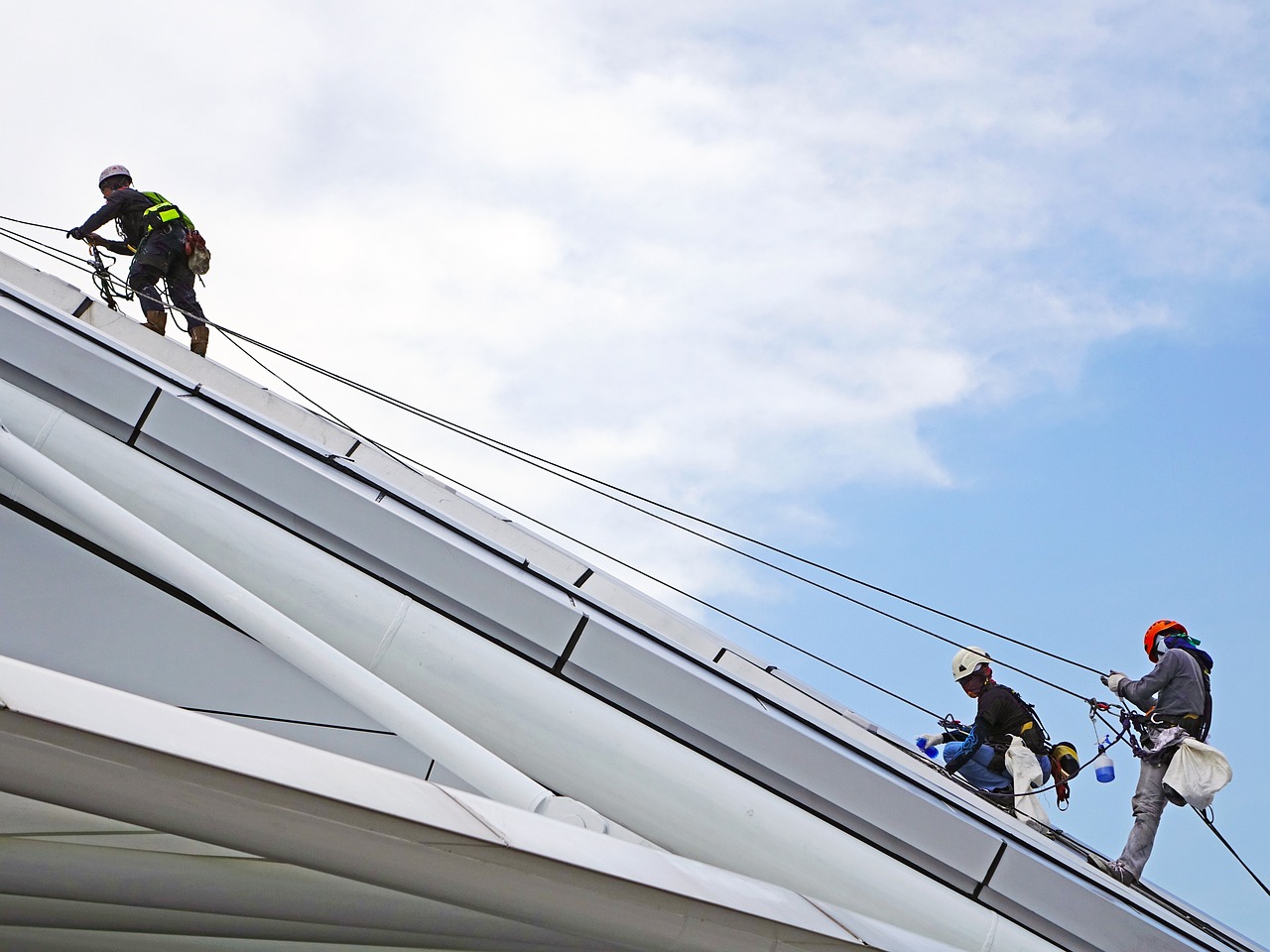
Planning Your Trip
This article provides essential safety tips for women who are traveling alone, ensuring they can enjoy their journeys while minimizing risks and staying secure in unfamiliar environments.
Effective trip planning is crucial for safety. Think of planning your trip as laying the groundwork for your adventure; it sets the stage for everything that follows. Start by diving deep into research about your destination. Not only should you look up the must-see attractions, but you should also familiarize yourself with local customs and transportation options. This knowledge can help you navigate the area more confidently and avoid situations that could put you at risk.
While you’re at it, take a moment to understand any potential risks associated with your destination. Are there areas you should avoid after dark? What’s the general safety reputation of the city? Websites and travel forums can offer a treasure trove of information. Create a well-informed itinerary that enhances your security. For example, if you plan to visit a particular neighborhood, check if it’s known for being safe for solo travelers.
Consider also the time of year you’re traveling. Some destinations may have seasons that are more prone to crime or natural disasters. A little foresight can go a long way in ensuring your safety. Additionally, it’s a good idea to have a backup plan. What will you do if your accommodation falls through? Having a list of alternative places to stay can save you from unnecessary stress.
Finally, don’t forget to share your travel plans with someone you trust. Whether it’s a family member or a close friend, keeping someone in the loop can be a lifesaver. They’ll know where you are supposed to be, which can be invaluable if something goes awry. Remember, the goal is to enjoy your trip while minimizing risks. By planning effectively, you’re already taking a big step toward a safer journey.
- What should I do if I get lost in an unfamiliar city?
Stay calm and try to retrace your steps. Use your smartphone’s map feature, or ask a local for directions. It's always wise to have a physical map as a backup. - How can I ensure my personal belongings are safe?
Use a secure backpack with zippers, and always keep it in front of you in crowded places. Consider using anti-theft bags and keeping valuable items in a hotel safe. - What should I do if I feel unsafe?
Trust your instincts. If something doesn’t feel right, remove yourself from the situation. Seek help from local authorities or fellow travelers if necessary.
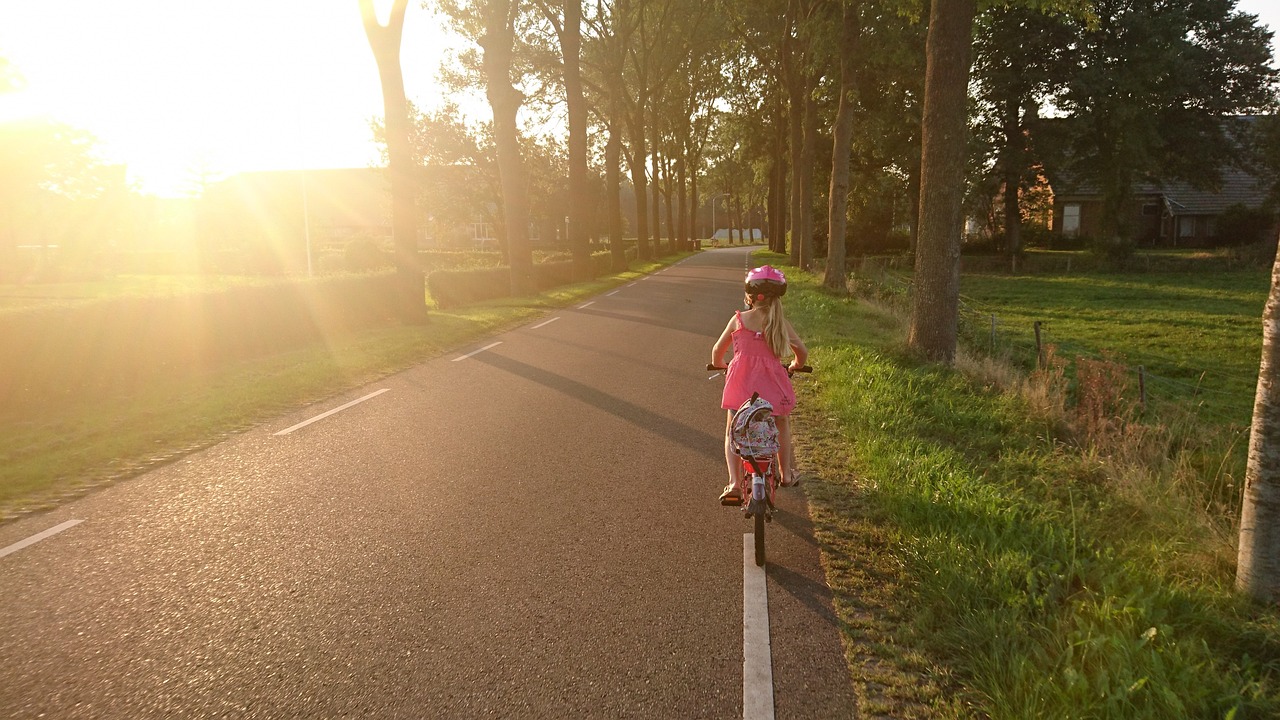
Choosing Accommodations Wisely
When it comes to traveling alone, one of the most critical decisions you'll make is where to stay. Choosing the right accommodation can significantly impact your safety and overall experience. First and foremost, it's essential to opt for places that have a solid reputation. Look for hotels or hostels that come highly recommended by other travelers. Websites like TripAdvisor or Booking.com can provide a wealth of information and real guest reviews. But remember, not all that glitters is gold—pay close attention to the comments regarding safety measures and the overall atmosphere of the place.
Another factor to consider is the location of your accommodation. Ideally, you want to stay in a neighborhood that is not only safe but also conveniently located near attractions and public transportation. Think of it like choosing a home base in a new city; you want it to be a place that makes exploring easy and enjoyable. A well-lit, populated area can provide an added layer of security, especially when you're returning late at night. Imagine walking back to your hotel after a fun day of sightseeing; wouldn’t it be comforting to know you’re in a safe environment?
Moreover, consider the amenities that come with your accommodation. Features such as a 24-hour reception desk, in-room safes, and security cameras can enhance your sense of safety. These little details might seem trivial, but they can make a world of difference when you’re in an unfamiliar place. For instance, having a safe to store your valuables can relieve a lot of stress, allowing you to focus on enjoying your trip rather than worrying about your belongings.
Before making a reservation, it's wise to thoroughly check reviews from previous guests. Look for patterns in the feedback—if multiple guests mention feeling unsafe or uncomfortable, it might be best to steer clear. Positive reviews can provide you with a sense of reassurance, while negative ones can serve as red flags. Always remember, your safety should never be compromised for the sake of saving a few bucks.
When you arrive at your chosen accommodation, trust your instincts. If something feels off or the place doesn’t meet your expectations, don't hesitate to look for alternatives. It’s better to spend a little extra money on a place that feels safe than to risk your well-being. Think of it this way: your gut feeling is like your internal alarm system; if it’s going off, pay attention!
As mentioned earlier, the location of your accommodation is crucial. Staying close to public transportation can save you time and energy, especially if you plan to explore the city. A good rule of thumb is to choose a place that’s within walking distance to key attractions. This not only makes your trip more enjoyable but also minimizes the risk of getting lost in unfamiliar areas. Imagine being able to stroll back to your hotel after a day of adventures, soaking in the sights and sounds of the city—now that’s what travel is all about!
Finally, always ensure that your accommodation has reliable internet access. This will allow you to stay connected with friends and family back home. Share your itinerary and check in regularly to keep your loved ones informed of your whereabouts. A simple text or a quick video call can provide peace of mind for both you and them. Think of it as a lifeline; it keeps you anchored while you explore the vastness of the world.
| Question | Answer |
|---|---|
| What should I look for in a safe accommodation? | Look for well-reviewed places in secure neighborhoods, with amenities like 24-hour reception and in-room safes. |
| How can I ensure my safety while staying in a hostel? | Choose hostels with good security measures, read reviews, and trust your instincts about the environment. |
| Is it safe to book accommodations online? | Yes, as long as you use reputable booking sites and read reviews from previous guests. |
| What should I do if I feel unsafe in my accommodation? | Trust your instincts and consider finding alternative lodging that makes you feel more secure. |
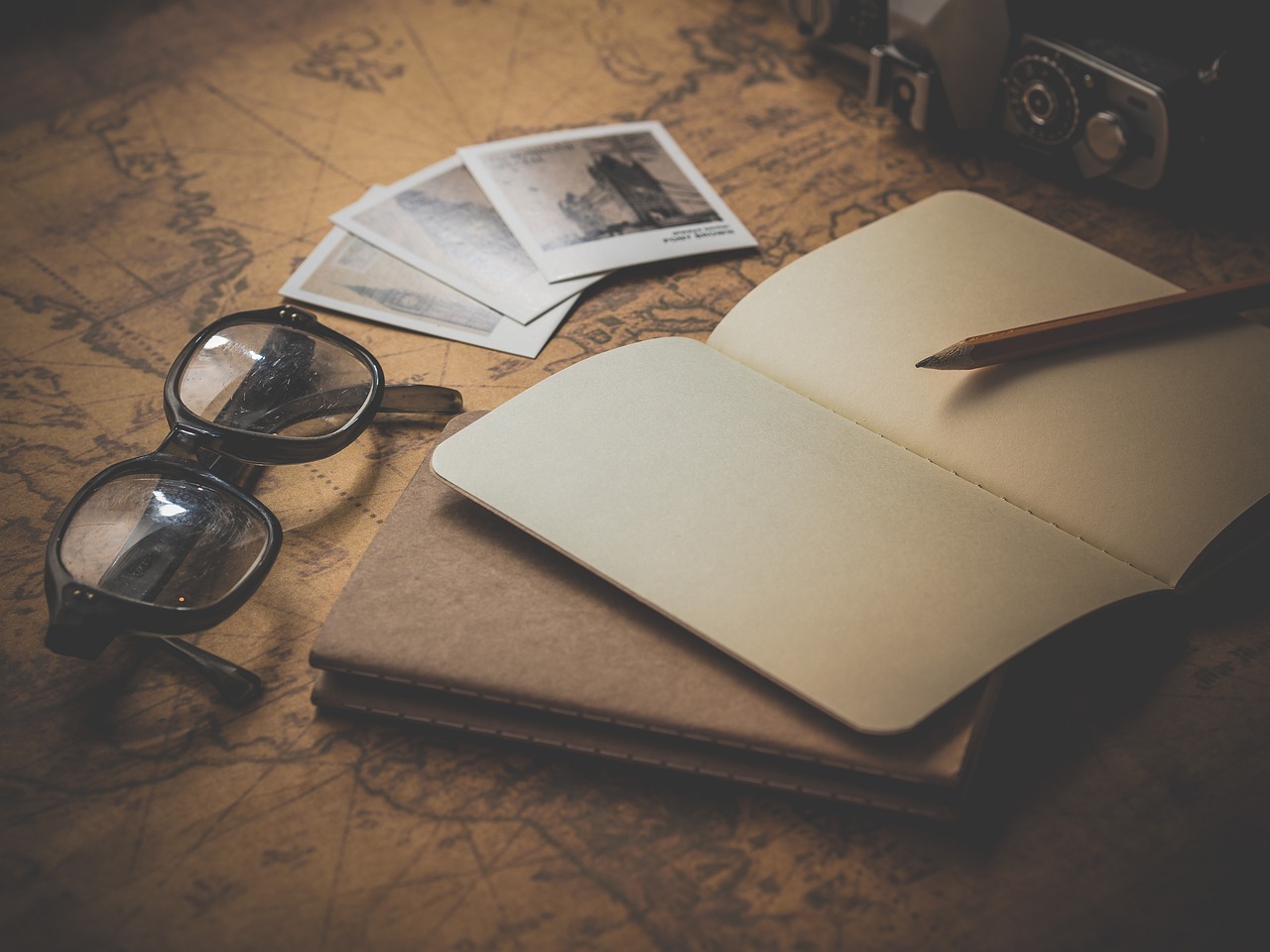
Checking Reviews
This article provides essential safety tips for women who are traveling alone, ensuring they can enjoy their journeys while minimizing risks and staying secure in unfamiliar environments.
Effective trip planning is crucial for safety. Research your destination thoroughly, including local customs, transportation options, and potential risks, to create a well-informed itinerary that enhances your security.
Selecting safe and reliable accommodations is vital. Opt for well-reviewed hotels or hostels in secure neighborhoods, and consider amenities like 24-hour reception and in-room safes to ensure your safety.
When it comes to finding a safe place to stay, is like having a trusted friend guide you through the maze of options. It’s not just about the star rating; it’s about the real experiences of fellow travelers. Dive into platforms like TripAdvisor, Yelp, or even social media to gather insights. Look for comments that specifically mention safety measures—these will often highlight whether the staff is attentive, if there are security features like cameras, and how well-lit the area is at night.
While reading reviews, pay attention to recurring themes. If multiple guests mention feeling unsafe or uncomfortable, take that seriously. On the flip side, glowing reviews about the security of a place can provide peace of mind. Here are some key aspects to focus on:
- Security Features: Does the hotel have key card access, a safe in the room, or security personnel on-site?
- Location: Is it in a safe neighborhood? Are there reports of incidents nearby?
- Guest Experiences: What do other travelers say about their stay? Did they feel welcomed and secure?
Ultimately, the reviews can serve as a roadmap to your peace of mind. They can help you avoid potential pitfalls and steer you toward places that prioritize your safety. So, take your time, read thoroughly, and don’t be afraid to dig deeper into the comments. A little research can go a long way in ensuring a secure and enjoyable trip.
Always trust your instincts when selecting accommodations. If a place feels unsafe or uncomfortable, don’t hesitate to find alternative lodging that better meets your safety standards.
Choose accommodations that are conveniently located near attractions and public transportation. Staying in well-lit and populated areas can significantly enhance your safety while traveling alone.
Maintaining communication with friends or family while traveling is essential. Share your itinerary and check in regularly to keep loved ones informed of your whereabouts and well-being.
Staying vigilant and aware of your surroundings can help you identify potential threats. Develop the habit of observing your environment and trusting your instincts to stay safe.
Learn to recognize signs of suspicious behavior in others. Being able to identify potential threats can empower you to take proactive measures to avoid dangerous situations.
While technology can enhance safety, it’s important to use it wisely. Be cautious with sharing personal information on social media and consider using apps designed for traveler safety.
Being prepared for emergencies is crucial when traveling alone. Familiarize yourself with local emergency numbers and have a plan in place for potential situations that may arise.
Develop a clear emergency plan that includes contact information for local authorities, nearby hospitals, and your country's embassy. This preparation can provide peace of mind during your travels.
In an emergency, staying calm is essential. Practice deep breathing techniques and remember your emergency plan to help you respond effectively and make sound decisions.
Q: What should I do if I feel unsafe in my accommodation?
A: Trust your instincts. If you feel unsafe, seek alternative lodging immediately. Your safety is the priority.
Q: How can I ensure my safety while using public transportation?
A: Stay alert, keep your belongings secure, and choose well-lit and populated areas. It’s also wise to research public transport options beforehand.
Q: What are the best apps for traveler safety?
A: Some popular apps include Safety Map, bSafe, and TripWhistle, which can help you stay connected and informed about your surroundings.
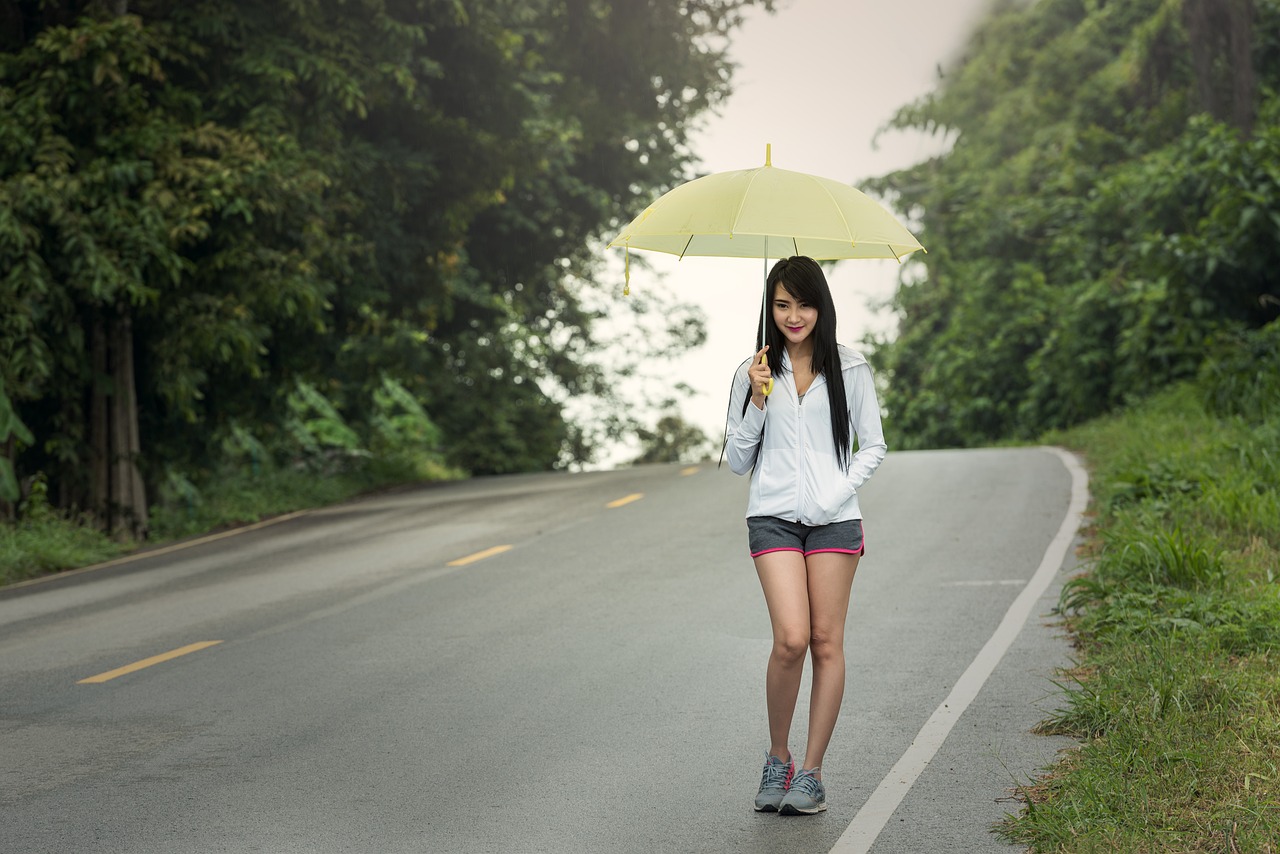
Trusting Your Instincts
When it comes to traveling alone, one of the most powerful tools you have at your disposal is your intuition. can be a game changer, especially in unfamiliar environments where you may feel out of your comfort zone. Have you ever walked into a place and felt an immediate sense of unease? That gut feeling is your body’s way of alerting you to potential danger. It’s crucial to listen to that inner voice. If something feels off, it probably is.
Imagine walking into a hotel lobby where the atmosphere feels tense or the staff seem unwelcoming. You might brush it off as mere nerves, but if your gut is telling you to leave, it’s wise to heed that advice. Choosing to trust your instincts can mean the difference between a safe experience and a potentially dangerous situation. Remember, your safety should always come first, and ignoring your instincts can lead to regrettable choices.
Here are a few scenarios where trusting your instincts can be particularly important:
- Choosing Accommodations: If a hotel or hostel feels sketchy upon arrival, don’t hesitate to seek out a different place. Your safety is worth the extra effort.
- Interacting with Strangers: If someone approaches you and your gut tells you to keep your distance, listen to that feeling. It’s better to be cautious than to regret a decision later.
- Exploring New Areas: If a neighborhood feels unsafe or deserted, trust your instincts and move to a more populated area. There’s no harm in prioritizing your safety.
In addition to trusting your instincts, it’s also helpful to be aware of your surroundings. This awareness can enhance your ability to listen to your gut feelings. For instance, if you notice that a street is unusually quiet or that people are behaving strangely, your instincts might be telling you to leave that area. Pay attention to these cues, as they can guide you toward safer choices.
Ultimately, trusting your instincts isn't just about being cautious; it’s about empowering yourself. When you learn to listen to that inner voice, you cultivate a sense of confidence that can enhance your overall travel experience. So, the next time you’re on the road, remember: your instincts are your allies. Embrace them, and let them guide you toward safer adventures.
Q: What should I do if I feel unsafe in my accommodation?
A: If you feel unsafe, trust your instincts and look for alternative accommodations. It's better to be safe than sorry.
Q: How can I improve my awareness of my surroundings?
A: Practice being observant. Notice details about your environment, such as exits, the behavior of those around you, and any unusual activities.
Q: Are there specific signs of suspicious behavior I should look for?
A: Yes, signs can include someone loitering without purpose, individuals frequently looking over their shoulders, or anyone trying to engage you in a way that feels uncomfortable.
Q: How can I stay connected with loved ones while traveling alone?
A: Use messaging apps or social media to check in regularly. Share your itinerary and let them know if your plans change.
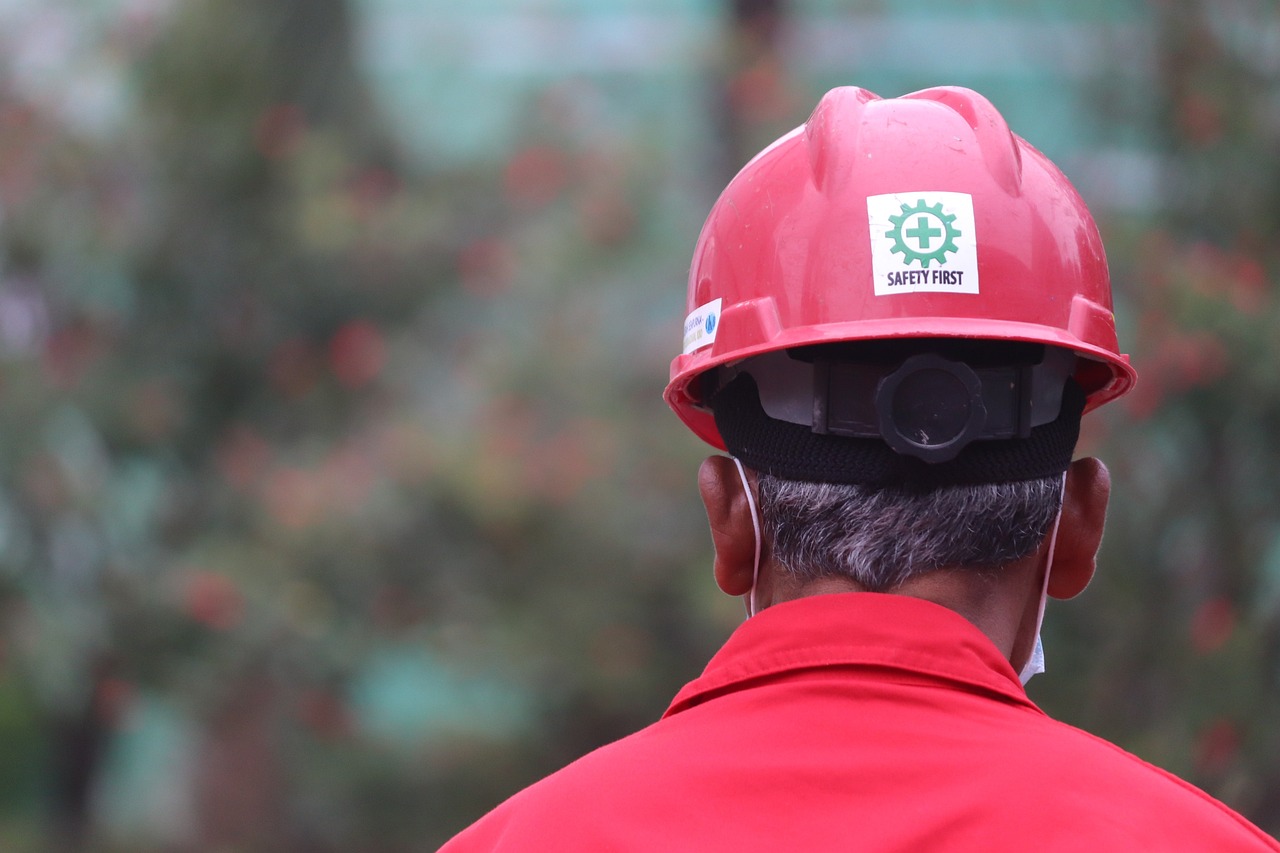
Location Matters
When it comes to traveling alone, the location of your accommodations can significantly impact your overall safety and experience. Choosing a place to stay that is conveniently situated near popular attractions and essential services can make your journey much smoother. Imagine arriving in a new city, feeling the excitement of exploration, but being stuck in a remote area far from everything. Not only can this lead to logistical hassles, but it can also increase your vulnerability.
Staying in well-lit and populated neighborhoods is crucial. These areas often have a higher presence of locals and tourists, which can deter potential threats and provide a sense of community. Think of it like this: when you’re in a crowd, you’re less likely to be singled out. Additionally, being close to public transportation can be a lifesaver, allowing you to navigate the city with ease and reducing the chances of getting lost in unfamiliar territory.
Moreover, it’s wise to consider the proximity of your accommodation to emergency services. In the unfortunate event of an incident, knowing that help is just around the corner can offer peace of mind. Here are a few tips to keep in mind when selecting your location:
- Research Local Neighborhoods: Use online resources or travel forums to find out which areas are considered safe and popular among travelers.
- Check the Walkability: Look for locations where you can easily walk to restaurants, shops, and attractions. This not only enhances your experience but also keeps you active and engaged.
- Assess Transportation Options: Ensure that public transport is easily accessible. Being near bus stops or train stations can save you time and money.
In conclusion, the right location can make all the difference in your travel experience. By staying in a safe, well-connected area, you can focus on enjoying your journey rather than worrying about your surroundings. So, take the time to choose wisely, and your solo adventure can be both exciting and secure!
Q: How do I find safe neighborhoods to stay in while traveling?
A: Research online through travel blogs, forums, and review sites. Look for traveler recommendations and check local crime statistics to gauge safety.
Q: Is it safe to walk alone at night in an unfamiliar city?
A: It depends on the location. Always assess the area and trust your instincts. If it feels unsafe, consider using a taxi or rideshare service instead.
Q: What should I do if I feel unsafe in my accommodation?
A: Trust your instincts. If you feel uncomfortable, speak to the management or consider finding alternative lodging.
Q: How can I stay connected with friends and family while traveling alone?
A: Share your itinerary and check in regularly through messaging apps or social media. Keep your loved ones informed of your whereabouts.
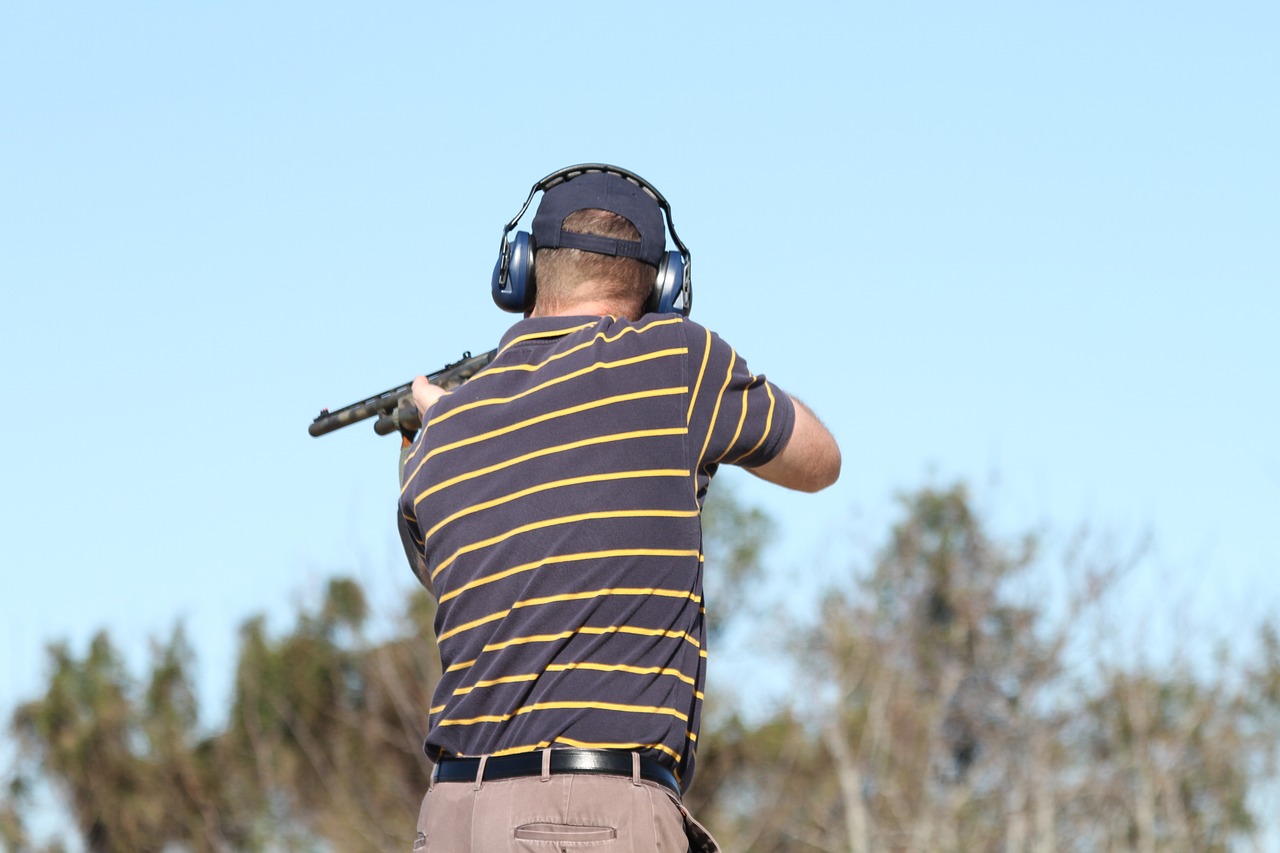
Staying Connected
In today's fast-paced world, staying connected while traveling alone is not just a luxury—it's a necessity. Imagine being in a bustling city where everything feels unfamiliar, yet you have the comforting presence of your loved ones just a message away. This connection can significantly enhance your safety and peace of mind. First and foremost, share your travel itinerary with family or friends. This means letting them know where you’ll be staying, your planned activities, and any important details. By doing this, you create a safety net; if something seems off, they will have a general idea of where to start looking for you.
Moreover, regular check-ins can be a lifesaver. Whether it’s a quick text or a FaceTime call, these moments of connection not only reassure your loved ones but also serve as a reminder for you to stay alert and aware of your surroundings. You might think, “What if I forget?” To make it easier, set reminders on your phone to check in at certain times of the day. This simple act can make a world of difference.
Additionally, consider using technology to your advantage. There are several apps designed specifically for traveler safety. For instance, apps like Find My Friends or Life360 allow you to share your location with trusted contacts. This way, they can see where you are in real-time, adding an extra layer of security. However, always be cautious about what you share online. Oversharing on social media can unintentionally expose you to risks. For example, posting that you’re alone in a hotel room could attract unwanted attention. Instead, save those beautiful travel photos for when you’re back home, where you can share the highlights without compromising your safety.
In summary, staying connected while traveling alone is about balance. It’s about using technology to enhance your safety while being mindful of the information you share. By keeping your loved ones informed and utilizing safety apps, you can travel with a greater sense of security and peace of mind. After all, the world is a vast and beautiful place, and you deserve to explore it without fear!
- What should I do if I lose my phone while traveling?
First, try to retrace your steps. If you can't find it, use another device to locate it through tracking apps. If you're unable to recover it, inform your contacts and consider getting a temporary phone.
- How often should I check in with family or friends?
It’s advisable to check in at least once a day, but if you're in a new place or doing something out of the ordinary, more frequent updates can be beneficial.
- Are there specific apps you recommend for traveler safety?
Yes! Some popular apps include TripIt for organizing your travel plans, Google Maps for navigation, and SafeTrek for emergency situations.

Being Aware of Your Surroundings
When it comes to traveling alone, one of the most important skills you can develop is the ability to be aware of your surroundings. Think of it like being a detective in your own adventure story; you need to observe, analyze, and react to the world around you. This means not just looking where you're going, but also noticing the little details that can make a big difference in your safety. Are there people hanging around who seem out of place? Is the area well-lit, or does it feel a bit too quiet? These are the kinds of questions you should be asking yourself as you navigate through new environments.
Being aware goes beyond just physical surroundings; it also includes understanding the social dynamics of the area. Different cultures have different norms, and what might seem normal to you could be perceived differently by locals. So, take some time to observe how people interact with each other. Are they friendly, or do they keep to themselves? This insight can help you gauge whether the atmosphere feels safe or if you should be more cautious.
Additionally, it’s essential to develop a habit of scanning your environment regularly. This doesn’t mean you should walk around looking paranoid, but rather, make it a point to glance around every now and then. You can even create a mental checklist of things to look for:
- Are there exits or safe spots nearby?
- Is there anyone who seems to be following you?
- Are there any potential hazards, like uneven pavement or crowded areas?
By being proactive and attentive, you can often sense when something feels off. Remember, your instincts are a powerful tool. If something doesn’t feel right, don’t hesitate to remove yourself from the situation. Trusting your gut can be the difference between a memorable trip and a regrettable experience.
Part of being aware is learning to recognize suspicious behavior. This can include anything from someone loitering too long in one spot to a person who seems overly interested in your belongings. Stay alert for these signs:
- People who are too close for comfort.
- Individuals who seem to be watching you without any apparent reason.
- Groups that are loud and rowdy, especially in quiet areas.
If you notice any of these behaviors, it's crucial to remain calm and think clearly. You might want to change your route or enter a nearby store or restaurant to regroup. Always have a plan for these situations, so you know how to react without panicking.
In today's digital age, technology can be both a blessing and a curse. While smartphones and apps can provide you with maps, emergency contacts, and even safety alerts, they can also make you vulnerable if not used wisely. Be cautious about sharing your location on social media, as this can attract unwanted attention. Instead, consider using apps designed specifically for traveler safety, which can help you stay connected with friends and family without compromising your security.
Ultimately, being aware of your surroundings is about developing a mindset that prioritizes safety. It’s about being engaged with the world around you, trusting your instincts, and knowing how to react in various situations. So, as you embark on your solo adventures, remember to keep your eyes and ears open. Your safety is worth the extra effort!
Q: What should I do if I feel unsafe while traveling alone?
A: If you feel unsafe, trust your instincts and remove yourself from the situation. Look for a safe place, such as a public area or a store, where you can regroup and assess your options.
Q: How can I stay connected with family while traveling alone?
A: Share your itinerary with family and friends, and set regular check-in times. Use messaging apps to keep them updated on your whereabouts.
Q: Are there specific signs of suspicious behavior I should look for?
A: Yes, look for individuals who seem overly interested in you or your belongings, or anyone who appears to be following you. Stay alert and trust your gut feelings.
Q: What technology can help enhance my safety while traveling?
A: Consider using safety apps that allow you to share your location with trusted contacts and provide emergency services contact information. Always keep your phone charged and accessible.

Recognizing Suspicious Behavior
When you're traveling alone, being able to recognize suspicious behavior can be a game changer. It's like having a sixth sense that helps you navigate through unfamiliar environments. You might think, "What does suspicious behavior even look like?" Well, it can manifest in various ways, and being aware of these signs can help you stay safe.
First off, pay attention to people who seem out of place or are acting unusually. For instance, if you notice someone loitering around a crowded area, constantly looking over their shoulder, or moving in and out of the crowd without a clear purpose, it could be a red flag. Trust me, your instincts often pick up on things before your conscious mind does. If something feels off, it probably is.
Another behavior to watch for is overly aggressive or persistent individuals. If someone approaches you multiple times despite your clear disinterest, that's a sign to distance yourself. You have every right to feel comfortable and secure in your surroundings. Additionally, be cautious of people who are too friendly too quickly. While many travelers are genuinely nice, there are those who use charm as a tactic to lower your guard.
Moreover, keep an eye out for individuals who seem to be observing you without engaging. This could be someone who is staring at you for an extended period or following you at a distance. If you feel like you're being watched, don’t hesitate to change your route or enter a public place where you feel safer.
It's also wise to be aware of your belongings. If you notice someone getting too close to your bag or personal items, it could indicate an intent to steal. Always keep your belongings secure and within sight. Using anti-theft bags or wearing them in front of you can help deter potential thieves.
In summary, recognizing suspicious behavior is about being observant and trusting your gut feelings. Here are some key behaviors to be mindful of:
- Loitering without a clear purpose
- Overly aggressive or persistent individuals
- People who are overly friendly too quickly
- Individuals who appear to be watching you closely
- Strangers getting too close to your belongings
By staying alert and aware of these signs, you can significantly reduce your risk while traveling alone. Remember, safety is not just about avoiding dangerous situations but also about being proactive in recognizing potential threats. Your journey should be about exploration and joy, not fear. So, keep your eyes peeled, trust your instincts, and enjoy your travels!
Q: How can I improve my situational awareness while traveling?
A: To enhance your situational awareness, practice being observant. Regularly check your surroundings, notice people’s behaviors, and trust your instincts. It can be helpful to engage in mindfulness practices before you travel.
Q: What should I do if I feel threatened?
A: If you feel threatened, prioritize your safety. Move to a well-lit, populated area, and don’t hesitate to ask for help from nearby individuals or authorities. Always have your phone ready to call for assistance if necessary.
Q: Are there apps that can help with travel safety?
A: Yes! There are several travel safety apps available that can help you stay connected with friends and family, share your location, and even alert authorities in case of an emergency. Research and download a few before your trip.
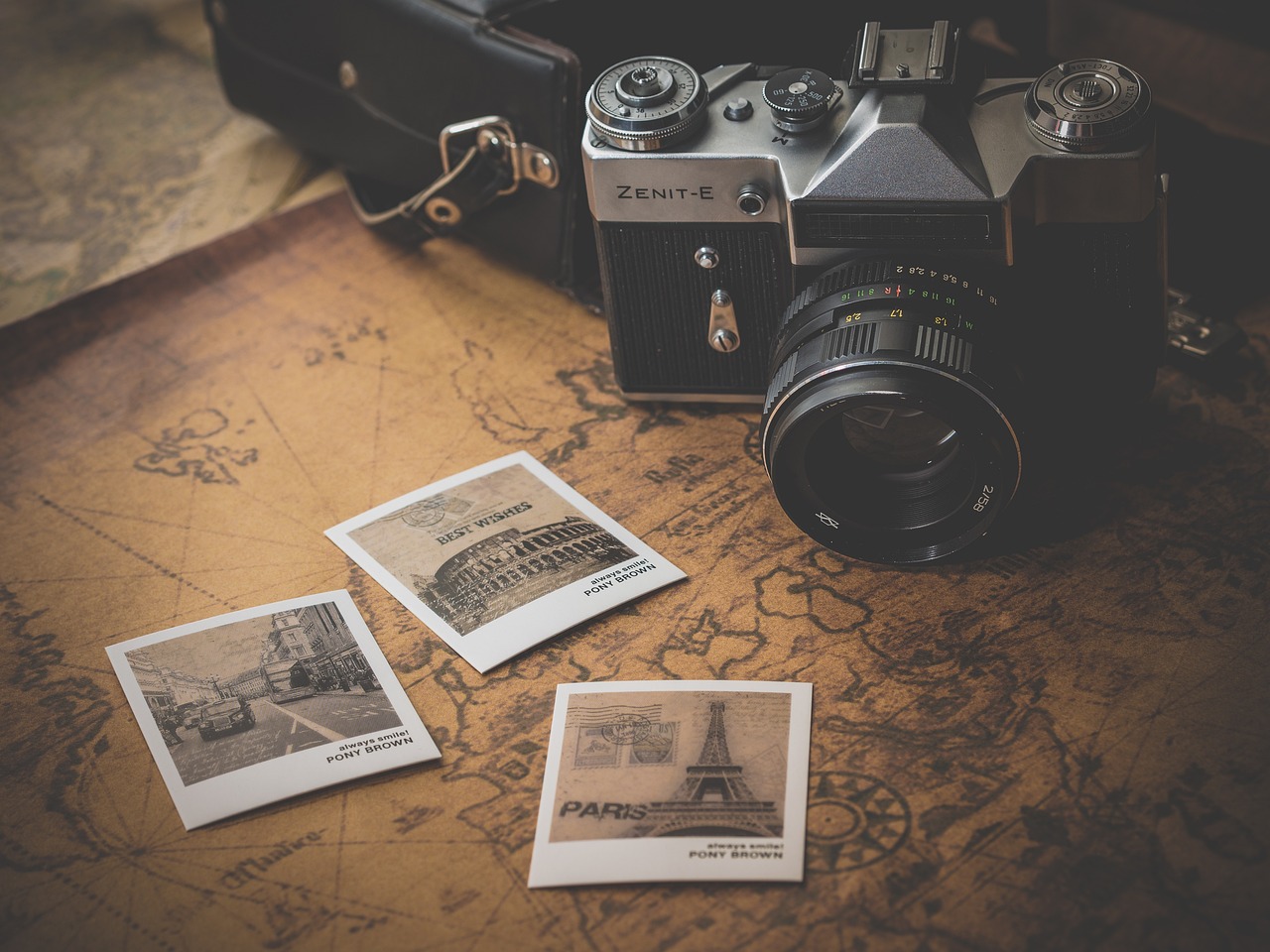
Using Technology Safely
This article provides essential safety tips for women who are traveling alone, ensuring they can enjoy their journeys while minimizing risks and staying secure in unfamiliar environments.
Effective trip planning is crucial for safety. Research your destination thoroughly, including local customs, transportation options, and potential risks, to create a well-informed itinerary that enhances your security.
Selecting safe and reliable accommodations is vital. Opt for well-reviewed hotels or hostels in secure neighborhoods, and consider amenities like 24-hour reception and in-room safes to ensure your safety.
Reading reviews from other travelers can provide insights into the safety and security of accommodations. Look for comments about security measures and overall guest experiences to make informed choices.
Always trust your instincts when selecting accommodations. If a place feels unsafe or uncomfortable, don’t hesitate to find alternative lodging that better meets your safety standards.
Choose accommodations that are conveniently located near attractions and public transportation. Staying in well-lit and populated areas can significantly enhance your safety while traveling alone.
Maintaining communication with friends or family while traveling is essential. Share your itinerary and check in regularly to keep loved ones informed of your whereabouts and well-being.
Staying vigilant and aware of your surroundings can help you identify potential threats. Develop the habit of observing your environment and trusting your instincts to stay safe.
Learn to recognize signs of suspicious behavior in others. Being able to identify potential threats can empower you to take proactive measures to avoid dangerous situations.
In today’s digital age, technology plays a significant role in travel safety, but it comes with its own set of challenges. While smartphones and apps can enhance your travel experience, they can also expose you to risks if not used wisely. For instance, sharing your location on social media or using public Wi-Fi networks can make you vulnerable to cyber threats. It’s essential to be mindful of how and when you share personal information.
Here are some practical tips to help you use technology safely while traveling:
- Limit Location Sharing: Be cautious about sharing your exact location on social media. Instead, consider posting about your experiences after you’ve left a location.
- Use Secure Networks: Avoid using public Wi-Fi for sensitive transactions, such as online banking. If you must connect, consider using a VPN to encrypt your data.
- Download Safety Apps: There are numerous apps designed to enhance traveler safety. These can include emergency contact apps, maps that work offline, or apps that provide real-time safety alerts.
Additionally, it’s wise to keep your devices secure. Use strong passwords and biometric locks to prevent unauthorized access. In case your phone is lost or stolen, make sure to have a plan to remotely wipe your data. This way, you can protect your personal information and reduce the risk of identity theft.
By being proactive and using technology wisely, you can enhance your safety while traveling alone. Remember, your devices are tools that can empower you, but they require responsible usage to truly keep you safe.
Being prepared for emergencies is crucial when traveling alone. Familiarize yourself with local emergency numbers and have a plan in place for potential situations that may arise.
Develop a clear emergency plan that includes contact information for local authorities, nearby hospitals, and your country's embassy. This preparation can provide peace of mind during your travels.
In an emergency, staying calm is essential. Practice deep breathing techniques and remember your emergency plan to help you respond effectively and make sound decisions.
Q: What should I do if I feel unsafe while traveling?
A: Trust your instincts. If you feel unsafe, seek help from local authorities or move to a safer location, such as a crowded area or a nearby hotel.
Q: How can I stay connected with family while traveling alone?
A: Use messaging apps, social media, or regular phone calls to keep your loved ones updated on your whereabouts and experiences.
Q: Are there specific apps I should download for safety?
A: Yes, consider downloading apps for emergency contacts, offline maps, and local emergency services to enhance your safety while traveling.

Emergency Preparedness
Being prepared for emergencies is crucial when traveling alone. It's not just about packing your bags and booking flights; it’s about thinking ahead and being ready for anything life might throw at you. Imagine you're exploring a new city and suddenly find yourself in a situation that feels a bit off. What would you do? This is where having a solid emergency plan comes into play. Familiarizing yourself with local emergency numbers, understanding the layout of your surroundings, and knowing where to find help can significantly enhance your sense of security.
One of the first steps in emergency preparedness is to create a clear emergency plan. This plan should include essential contact information for local authorities, nearby hospitals, and your country's embassy. You might think, "Why do I need all this info?" Well, in a moment of panic, having everything written down can save you precious time and keep you calm. Consider storing this information in your phone or carrying a small card in your wallet that you can easily access. Here’s a simple table to illustrate what information you might want to include:
| Emergency Contact | Contact Number | Address |
|---|---|---|
| Local Police | 112 | City Police Station Address |
| Nearest Hospital | 123-456-7890 | Hospital Address |
| Your Embassy | 987-654-3210 | Embassy Address |
Now, let’s talk about the importance of staying calm in a crisis. It’s easy to let fear take over when things go awry, but practicing deep breathing techniques can help you regain your composure. Picture this: you’re in a crowded marketplace, and you suddenly realize your wallet is missing. Instead of spiraling into panic, take a deep breath, count to three, and remember your emergency plan. This approach allows you to think clearly and make sound decisions, whether that means retracing your steps or reporting the loss to local authorities.
In addition to having a plan, it’s also wise to stay informed about the local environment. This means understanding not just where to find help but also recognizing the safest routes to take in case of an emergency. It might be beneficial to familiarize yourself with the area around your accommodation, noting the locations of hospitals, police stations, and safe public spaces. This knowledge can act as a safety net, giving you confidence as you navigate unfamiliar streets.
Lastly, remember that emergencies can happen anywhere, at any time. Whether it’s a natural disaster, a medical emergency, or a simple case of losing your way, being prepared can make all the difference. So, take a moment before your next adventure to put together your emergency plan. Your future self will thank you for it!
Q: What should I do if I lose my passport while traveling?
A: First, stay calm. Report the loss to local authorities and your country’s embassy or consulate as soon as possible. They will guide you through the process of obtaining a replacement.
Q: How can I ensure my safety when using public transportation?
A: Always keep your belongings close, be aware of your surroundings, and avoid empty or poorly lit areas. If something feels off, trust your instincts and consider waiting for the next vehicle.
Q: Is it safe to share my travel plans on social media?
A: While it can be tempting to share your adventures, be cautious about revealing your location in real-time. Consider sharing your experiences after you've left a location to maintain your safety.
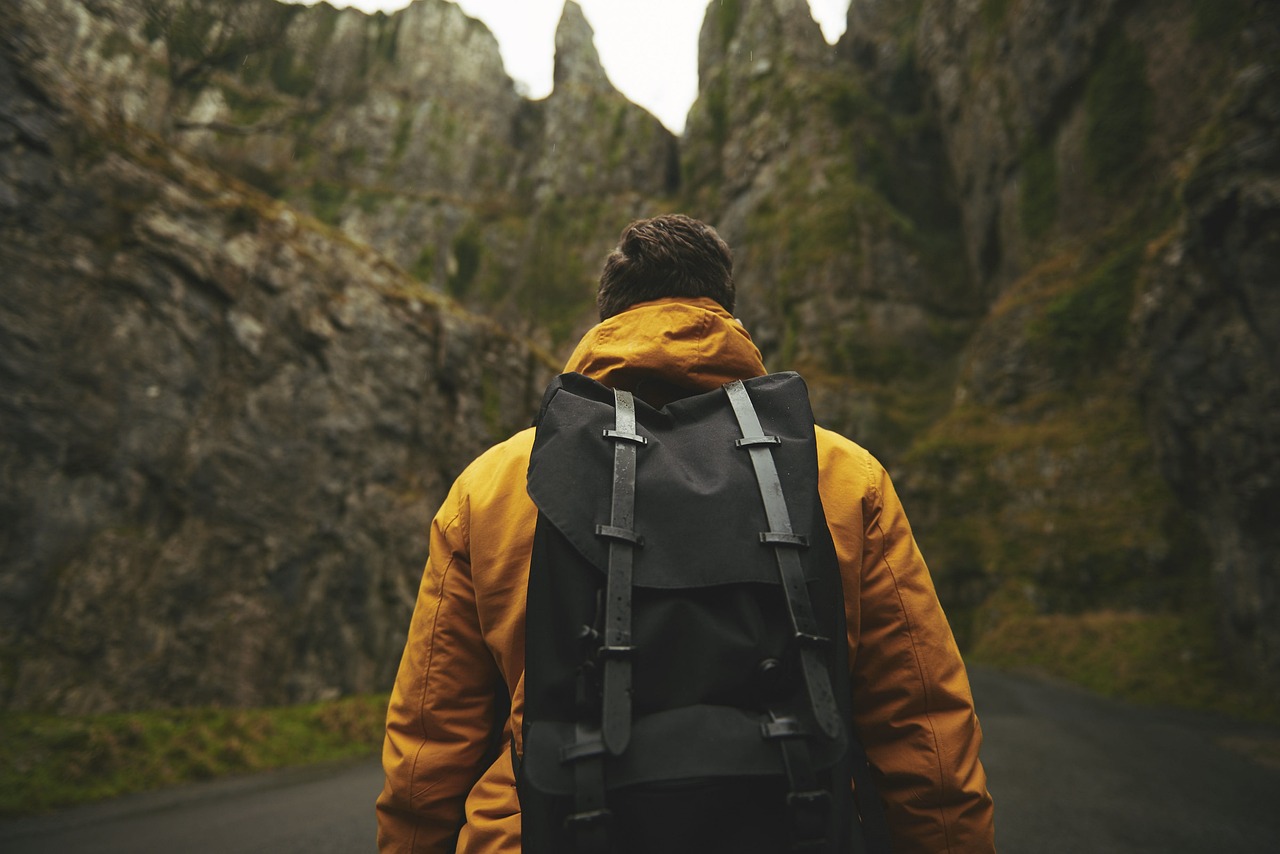
Creating an Emergency Plan
When you're traveling alone, it's essential to have a solid emergency plan in place. Think of it as your safety net, a lifeline that you can rely on when things don't go as planned. Start by gathering crucial information that can be a game-changer in a crisis. For instance, jot down the local emergency numbers, including police, fire, and medical services. You might also want to note the contact details of your country's embassy or consulate in the area. Having this information at your fingertips can save precious time in an emergency.
Next, consider creating a simple table that outlines your emergency contacts and important locations:
| Type | Contact Information |
|---|---|
| Local Emergency Number | 112 (or local equivalent) |
| Police Station | Address and phone number |
| Hospital | Address and phone number |
| Embassy/Consulate | Address and phone number |
But an emergency plan is more than just having numbers saved in your phone. It’s about being mentally prepared too. Think through various scenarios—what would you do if you lost your wallet, or if you felt unsafe in your surroundings? Practicing these scenarios in your mind can help you react quickly and effectively when faced with real-life challenges. Remember, staying calm is key. In a crisis, take a deep breath, assess your situation, and refer back to your emergency plan.
Finally, share your emergency plan with someone you trust back home. Let them know your itinerary and how they can reach you in case of an emergency. This way, not only do you have a plan, but you also have a support system that’s aware of your situation. It's like having a buddy system, even when you're miles away!
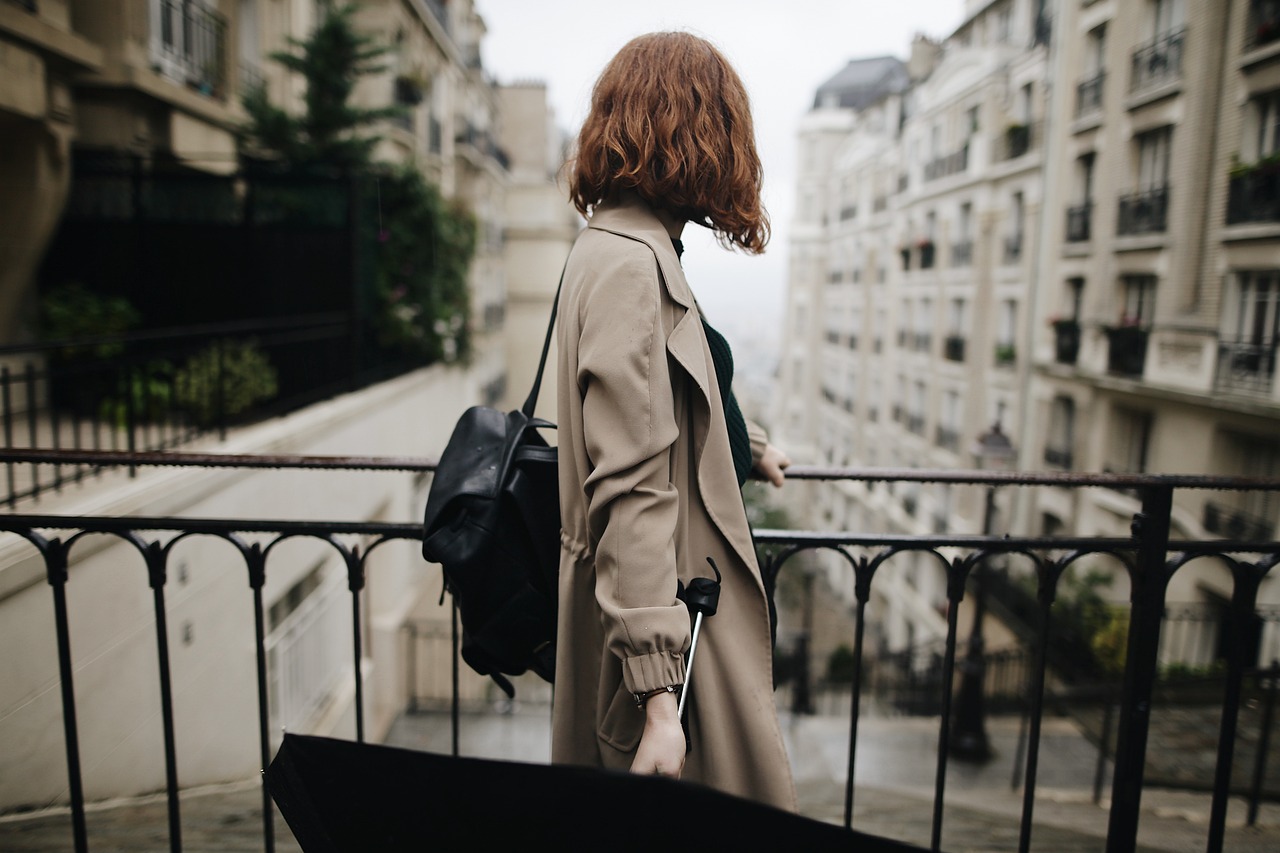
Staying Calm in Crisis
This article provides essential safety tips for women who are traveling alone, ensuring they can enjoy their journeys while minimizing risks and staying secure in unfamiliar environments.
Effective trip planning is crucial for safety. Research your destination thoroughly, including local customs, transportation options, and potential risks, to create a well-informed itinerary that enhances your security.
Selecting safe and reliable accommodations is vital. Opt for well-reviewed hotels or hostels in secure neighborhoods, and consider amenities like 24-hour reception and in-room safes to ensure your safety.
Reading reviews from other travelers can provide insights into the safety and security of accommodations. Look for comments about security measures and overall guest experiences to make informed choices.
Always trust your instincts when selecting accommodations. If a place feels unsafe or uncomfortable, don’t hesitate to find alternative lodging that better meets your safety standards.
Choose accommodations that are conveniently located near attractions and public transportation. Staying in well-lit and populated areas can significantly enhance your safety while traveling alone.
Maintaining communication with friends or family while traveling is essential. Share your itinerary and check in regularly to keep loved ones informed of your whereabouts and well-being.
Staying vigilant and aware of your surroundings can help you identify potential threats. Develop the habit of observing your environment and trusting your instincts to stay safe.
Learn to recognize signs of suspicious behavior in others. Being able to identify potential threats can empower you to take proactive measures to avoid dangerous situations.
While technology can enhance safety, it’s important to use it wisely. Be cautious with sharing personal information on social media and consider using apps designed for traveler safety.
Being prepared for emergencies is crucial when traveling alone. Familiarize yourself with local emergency numbers and have a plan in place for potential situations that may arise.
Develop a clear emergency plan that includes contact information for local authorities, nearby hospitals, and your country's embassy. This preparation can provide peace of mind during your travels.
In the face of a crisis, your ability to remain calm can be your greatest asset. Imagine being in a storm; the winds may howl and the rain may pour, but finding your center is like finding a sturdy tree to shelter under. When you encounter a challenging situation while traveling alone, take a moment to breathe deeply. This simple act can help clear your mind and reduce anxiety. Remember, panic can cloud your judgment, making it harder to think clearly and make decisions.
Consider having a set of techniques ready for when things go awry. Here are a few strategies to keep in mind:
- Deep Breathing: Take a few deep breaths to slow your heart rate and calm your nerves. Inhale deeply through your nose, hold for a moment, and then exhale slowly through your mouth.
- Assess the Situation: Quickly evaluate what’s happening. Is it a minor inconvenience or a serious threat? Understanding the gravity can help guide your next steps.
- Stick to Your Plan: If you have an emergency plan, refer to it. Familiarity with your plan will help you feel more in control.
In any crisis, remember that your safety is paramount. If you're in a situation that feels threatening, don't hesitate to seek help from local authorities or passersby. Trust your instincts; if something feels off, it probably is. Finally, remind yourself that you are capable and resilient. With the right mindset and preparation, you can navigate through any storm.
Q: What should I do if I feel unsafe while traveling?
A: Trust your instincts. If you feel unsafe, seek help immediately. Look for local authorities, or find a safe place where you can regroup and plan your next steps.
Q: How can I keep my belongings safe while traveling?
A: Use a crossbody bag or money belt, keep your valuables close, and avoid displaying expensive items. Always lock your accommodations and use hotel safes when available.
Q: Is it safe to use public transportation alone?
A: Yes, but stay alert. Choose busy routes, avoid traveling late at night, and sit near the driver or in well-lit areas.
Q: Should I share my travel plans with anyone?
A: Yes, it's wise to share your itinerary with a trusted friend or family member. Regular check-ins can provide an extra layer of security.
Frequently Asked Questions
- What should I do if I feel unsafe in my accommodation?
If you ever feel unsafe in your accommodation, trust your instincts. Consider finding alternative lodging immediately. Look for a different hotel or hostel that has better reviews and security measures. Your safety is the top priority, so don’t hesitate to make a change if something feels off.
- How can I stay connected with family while traveling alone?
Staying connected is vital when you're traveling solo. Share your itinerary with family or friends and check in with them regularly. You can use messaging apps, social media, or even a simple phone call to keep them updated about your whereabouts and well-being. It’s like having a safety net, ensuring someone knows where you are at all times.
- What are some signs of suspicious behavior I should look out for?
Being aware of your surroundings is crucial. Look for individuals who seem overly interested in you or your belongings, or those who are loitering without purpose. If someone is acting oddly or appears to be following you, trust your gut. It's better to be cautious and change your route or seek help if needed.
- How can I prepare for emergencies while traveling alone?
Creating an emergency plan is essential. Familiarize yourself with local emergency numbers, know the location of nearby hospitals, and have contact information for your country's embassy handy. This preparation can provide peace of mind and help you respond effectively in a crisis.
- Is it safe to use public Wi-Fi while traveling?
While public Wi-Fi can be convenient, it can also pose risks. Avoid accessing sensitive information, like banking details, over public networks. Consider using a VPN for added security when connecting to public Wi-Fi, as it helps protect your data from prying eyes.



















